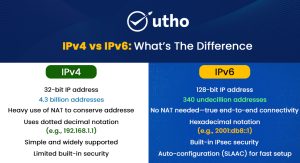With thousands of new businesses popping up every day, having a website that stands out and stands out is crucial to attracting potential customers. Therefore, choosing the best VPS providers is paramount. Making the wrong choice can lead to security holes. It can also cause website crashes, bad support, and slow downloads. However, choosing between different web hosts can be confusing.
In this blog, we will discuss why not all VPS providers are created equal and outline the key criteria for choosing the best VPS providers host. By the end of the day, you will know what to look for in a VPS provider. And, how to choose the one that is right for your business. Let’s get to it.
Understanding VPS Hosting
VPS hosting is a form of web hosting. In it, a physical server is divided into several virtual servers using virtualization technology.
Each virtual server runs alone. It has its own operating system, storage, and dedicated resources. These resources include CPU, RAM, and bandwidth.
Compared to shared hosting, VPS hosting offers more control and flexibility. Users have root access to their virtual server. This lets them install and configure software.
Also, VPS hosting offers better performance and reliability. This is because resources are not shared among multiple users.
Understanding the Functionality of VPS Hosting
A Virtual private server is a repository. Your web host stores the files and databases you need for your website on it. When someone visits your website, their browser asks your server for the site’s information. The server then sends the needed files over the Internet. VPS hosting provides a virtual server. It mimics a physical server but is shared between many users.
Your best VPS provider uses virtualization technology like a hypervisor. It adds a virtualization layer on top of the server’s operating system. This layer separates the server. It lets each user install their own operating system and software.
Thus, a Virtual Private Server (VPS) combines virtuality and privacy, offering total control. It runs on the operating system independently of other users. VPS technology is like making partitions on a computer. It lets you run multiple operating systems, like Windows and Linux, without rebooting.
VPS allows you to host your website in a secure container. It has resources, like memory, disk space, and CPU cores, that are not shared with others. VPS hosting offers similar root-level access to a dedicated server but at a lower cost.
Key Considerations for Choosing the Best VPS Providers
Understanding the best VPS providers prioritization can simplify the decision-making process. The following critical factors will help you prepare to choose the best VPS providers for your needs:
Server Uptime and Performance
Server uptime refers to how long a server is up and available online. You must prioritize service providers with high uptime guarantees. This is very important so that your website is always available. Also, the VPS servers’ performance directly affects your website’s speed and load times. Choosing the best VPS provider services can improve server performance. This helps users and makes servers last longer.
Administrative flexibility
Administrative access provides full control of your server. It allows customization and installation of needed software, like Apache and MySQL. Not all VPS plans have root privileges. So, it’s important to check if this feature meets your needs. This is especially true if you need advanced server features.
Quality Customer Support
Good customer support is invaluable. It helps resolve issues quickly and keep your website running well. Evaluate the support options each provider offers. This includes availability by email, phone, or live chat. Proper and knowledgeable support can make a big difference to your hosting experience.
Managed and Unmanaged Plans
VPS hosting plans are generally categorized as managed or unmanaged. Managed plans include a hosting provider. They handle server tasks and some parts of website upkeep. On the other hand, unmanaged plans offer more control. But, you have to manage server settings on your own. Choose a plan based on your technical expertise and server management preferences.
Cost-benefit analysis
While price is the deciding factor, choose value over the cheapest option. Compare plans based on specs. These include RAM and bandwidth. They determine server power and data capacity. Consider scalability options to handle future growth without compromising performance.
By carefully evaluating these factors, you can choose the VPS providers. The provider must meet your website’s needs and growth goals. This approach ensures reliable performance. It also provides the best support and scalability as your online presence grows.
Why choose VPS hosting for your business?
There are compelling reasons to choose VPS hosting, including:
A cost-effective solution
Managing your SMB budget becomes difficult as your business site grows. Investing in shared hosting can hinder growth. VPS hosting strikes a balance. It offers a cheap alternative to shared and dedicated servers.
Better security
Due to the increasing threats on the Internet, security is a top priority when choosing a host. VPS hosting offers better security than shared hosting. It isolates your data and apps on a separate virtual server. This setup minimizes the risk of security breaches and malware.
Scalable and flexible
Companies that want to expand need a web service that can scale. It is very important. Regardless of physical servers, VPS hosting allows for easy scalability. Your hosting provider can adjust the VPS hypervisor limits. They can allow upgrades or downgrades without permission.
No Neighbor Draining
Sites on shared hosting can suffer from resource drain from neighboring sites. This drain affects user experience and conversion rates. VPS hosting avoids this problem. It reserves resources to ensure consistent performance for your website visitors.
Better Site Control
VPS hosting offers complete isolation and control over your site. You get full access to the operating system. This includes root/administrative privileges. They allow you to install custom software, do advanced coding, and test applications efficiently.
Lower costs
Sharing server maintenance costs among multiple users. This makes VPS hosting cheaper than dedicated servers.
Highly customizable
VPS hosting is very flexible. It allows for easy customization, such as adding OS features.
User-friendly
VPS hosting is easy to use. It is accessible through control panels with an intuitive Graphical User Interface (GUI). The GUI makes it easy to install and configure applications.
Types of VPS Hosting
You need to understand the types of VPS hosting. This is important for making informed decisions about your website or application. Here’s an overview of the key types:
Managed VPS Hosting
Managed VPS hosting provides comprehensive support and management from your hosting provider. Users benefit from expert help with server installation, maintenance and security updates. Evaluate the level of management and support offered to find the best VPS hosting for your needs.
Unmanaged VPS Hosting
Unmanaged VPS hosting gives users more server control. But, you must do maintenance, updates, and security. Understanding how to set up and manage a VPS is essential for this type of hosting.
Linux VPS Hosting
Linux-based VPS hosting runs on a Linux operating system. It is highly customizable, stable and cost-effective. When choosing this type of hosting, consider compatibility and Linux environment settings.
Windows VPS Hosting
Windows VPS Hosting runs on the Windows operating system. So, it is for users who are familiar with Windows environments. When choosing Windows VPS hosting, evaluate compatibility and system requirements.
Cloud VPS Hosting
Cloud VPS hosting uses multiple interconnected servers that provide scalability and flexibility. Explore trial or free tiers to understand how to set up a VPS in the cloud and find the best VPS providers.
VPS Hosting with cPanel
VPS Hosting with cPanel includes a cPanel control panel. It makes server management easier. Explore cPanel’s interface and features to manage your website efficiently.
Choosing the right VPS hosting depends on many factors. They include your needs, expertise, and management level. They also include the OS, scalability, administration, and support.
Understanding VPS Security: Important Steps for Best VPS Providers
Securing your VPS hosting is important. Choosing the best VPS provider with strong security is crucial. Here is a detailed guide on security measures. You should consider them when choosing the best VPS hosting.
Encrypted communication and secure protocols
The best VPS providers that offer encrypted channels. They should use secure protocols like SSH (Secure Shell) or SSL. ). Sockets layer). These protocols keep data secure. They transfer data between your devices and the server. When choosing VPS hosting, prioritize providers with strong encryption and secure communication protocols.
Firewall Protection
The best VPS providers should include strong firewall protection. Firewalls act as barriers. They filter incoming and outgoing traffic to stop unauthorized access and threats. When choosing the best VPS providers that offer advanced firewalls. They will improve your server’s security.
DDoS Protection
Protection against Distributed Denial of Service (DDoS) attacks is critical. Choose the best VPS providers equipped with effective DDoS mitigation strategies. These measures protect your server from too much traffic. It could disrupt or crash your services. When evaluating VPS hosting options, prioritize providers with strong DDoS protection.
Regular security updates and patch management
The best VPS providers prioritize regular security updates and patch management. They ensure that operating systems, applications, and software are quickly updated. This is to fix vulnerabilities and security issues. When learning to choose VPS hosting, pick providers known for frequent security updates. They are also known for their patches.
Intrusion Detection and Prevention Systems (IDS/IPS)
Look for the best VPS providers. They use Intrusion Detection Systems (IDS) and Intrusion Prevention Systems (IPS). These systems monitor network traffic in real-time. They identify and block potential threats or suspicious activity. To understand VPS hosting, prioritize providers with strong IDS/IPS. They enhance server security.
Data Backup and Disaster Recovery
Choose the best VPS providers. They offer reliable data backup services and strong backup plans. Regular data backup ensures that your data is secure and available. It protects against data loss or system failure. When considering VPS hosting options, prioritize providers. They should have good data backup and recovery systems.
Finally, when choosing the best VPS providers, prioritize providers that offer encrypted communications. They should also provide strong firewalls and DDoS protection. They should do regular security updates and have powerful IDS/IPS. They should also have reliable backups. To understand VPS hosting, you must evaluate its security measures. They protect the integrity and availability of hosted data and applications.
How much should I budget for VPS hosting?
You must choose the right budget for a VPS hosting plan. This requires careful thought about many factors to meet your needs. Here’s a step-by-step guide to budgeting for VPS hosting:
Assess Your Hosting Requirements
Start by fully assessing your hosting needs. Consider the CPU, RAM, storage, and bandwidth. You must understand your requirements. This is crucial for learning to choose VPS hosting. It will help you match your needs with the available hosting plans.
Compare Hosting Plans
Research different and best VPS providers and compare their plans. Look for service providers. They offer different plans with varied resources and features. Compare prices and features to find the best VPS hosting solution for your budget and needs.
Consider Scalability
When determining your VPS hosting budget, consider scalability. Choose a plan that allows for future growth without exceeding budget limits. Expect more traffic and resource needs as your site or app grows.
Evaluating Additional Services and Additional Features
Explore more services and features offered by the best VPS providers. These include SSL certificates, backup solutions, and managed support. Evaluate the value of these added features. Compare it to their costs. Also, see how they meet your hosting needs.
Determine Your Budget Range
Set your budget based on your hosting needs. Consider the features of the VPS plans. We will balance cost and service level. This will ensure the best performance and reliability.
Prioritize Value and Reliability
When choosing a VPS hosting plan, prioritize value and reliability over lower cost. Good service, a maintenance warranty, and responsive support are important. They can justify a slightly higher cost for better hosting.
In short, budgeting for VPS hosting involves evaluating your hosting needs, comparing plans, weighing scalability, evaluating add-ons, determining an appropriate budget range, and prioritizing value and reliability. Choosing VPS hosting involves balancing cost with service quality. You need service that best fits your hosting needs.
Are You Prepared for Your Own VPS Hosting?
Congratulations on reaching this point! Now that you understand the concept of VPS hosting and its benefits for your rapidly growing website, you are well prepared to migrate to VPS hosting. This step gives you the resources and control you need to take your website to the next level while maintaining cost efficiency.
If you’re still choosing a VPS provider, consider Utho’s unmanaged VPS hosting service. We offer extensive VPS hosting benefits and a 99.9% uptime guarantee.
Contact us at utho.com








